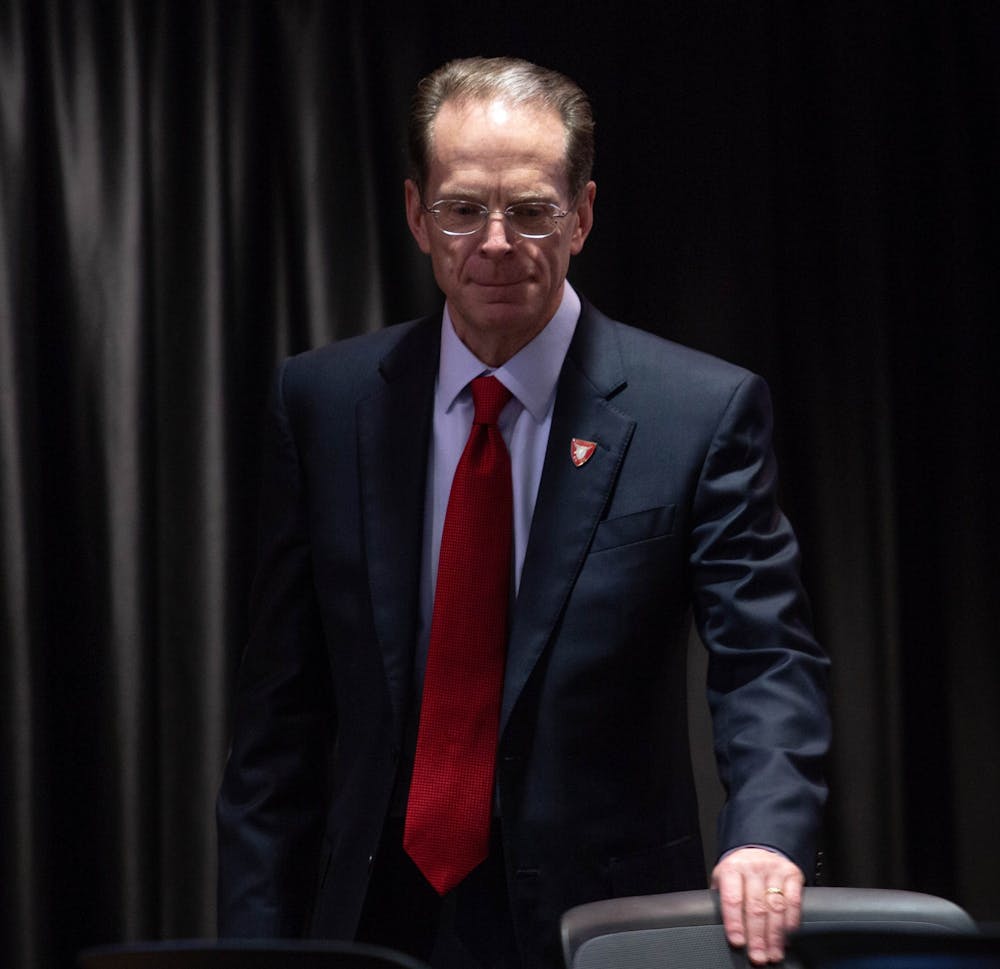At its June 19 meeting, Ball State’s Board of Trustees approved a resolution authorizing Ball State to continue operations after July 1, and continue spending thereafter at the same levels the Board approved for the current fiscal year, which ends June 30, according to an email sent out by President Geoffrey Mearns.
This resolution, Mearns said, authorizes the university to prioritize spending on its core mission and invest one-time resources in health and safety measures necessary to resume on-campus instruction and activities in August.
Budget plans for FY 2021
In a previous email sent out by the president April 17, he said Ball State was well-positioned for this year’s fiscal challenges, projecting that the university will finish the 2020 fiscal year with a positive operating margin.
RELATED: President updates Ball State community on future plans amid COVID-19 pandemic
In April, he also said Ball State has a solid credit rating and adequate financial reserves to weather a temporary unexpected emergency, in addition to receiving some one-time financial support from the CARES Act. According to a Ball State press release the university is eligible to receive $7.6 million through this act.
“Because of our long history of fiscal prudence and financial stability, as well as resources we received from the federal CARES Act, we have the capacity to make substantial investments to make our campus safe,” Mearns said in the press release. “At the same time, we remain committed to providing our students with the distinctive, high-impact learning opportunities that will ensure their academic and professional success.”
In his June email, Mearns said this will enable the university to make critical investments like investing in a comprehensive, on-campus testing program, modifications to some classrooms and other spaces, increased cleaning and sanitizing of facilities, purchasing personal protective equipment and purchasing technology for faculty and students to make online instruction more effective and accessible. He said these resources also enable the university to provide additional emergency financial assistance to students during the economic crisis brought about by the COVID-19 pandemic.
However, he said Ball State will have its state appropriation reduced by 7 percent next year — a reduction of nearly $10 million to its operating budget. Due to this reduction and continued uncertainty about enrollment for the fall 2020 year, he said the board directed Ball State to complete the preparation of a more austere budget for the 2021 fiscal year.
Mearns previously said in the wake of the 2007-09 Great Recession, Ball State's state appropriation was reduced by approximately 6 percent. In April, he said if this were to happen again, its state appropriation would be reduced by approximately $8 million.
In order to fulfill this fiscal responsibility, he said he asked each vice president to prepare a budget reduction plan for their respective divisions for the upcoming fiscal year by taking the following steps:
- Until further notice, Ball State will implement a “soft” freeze on hiring and not conduct searches to fill any vacancies, unless Mearns determine the position is vital to the university's mission.
- There will be no annual merit salary increases next year.
- Ball State will continue to reduce or eliminate non-essential, non-personnel expenditures.
- The university will eliminate some vacant positions and a relatively small number of filled administrative and staff positions, and will not renew the contracts of a very small number of faculty members. Individuals who are personally affected by these decisions will be notified no later than July 31.
Mearns said some of these decisions will directly affect less than 2 percent of Ball State’s employees, which he said are necessary to maintain its capacity to fulfill the university’s mission and prepare for the future.
“The approach to the budget that leadership has proposed allows us to balance our need for strategic investments, such as COVID-19 preparation and academic programs, with expense reductions,” said Board Chair Renae Conley, who noted the Board will review the budget for next fiscal year at its September meeting.
Phased retirement program
The board also approved the university’s recommendation to expand the existing phased retirement program, which will be effective July 1, for full-time faculty to include full-time professional and staff employees.
This program will enable all eligible full-time professional and staff employees to reduce their service as they phase into retirement over a period of one to three years. It is a voluntary arrangement between an employee and Ball State and will enable the university to retain the expertise of experienced employees while reducing some recurring personnel expenses.
Room and board contracts
Additionally, the university will adjust housing and dining contracts for its students for the fall 2020 semester. Students will only be billed for 13 weeks, as opposed to the usual 16-week contract rate. Mearns said this will save students and their families approximately $5.5 million next fall.





